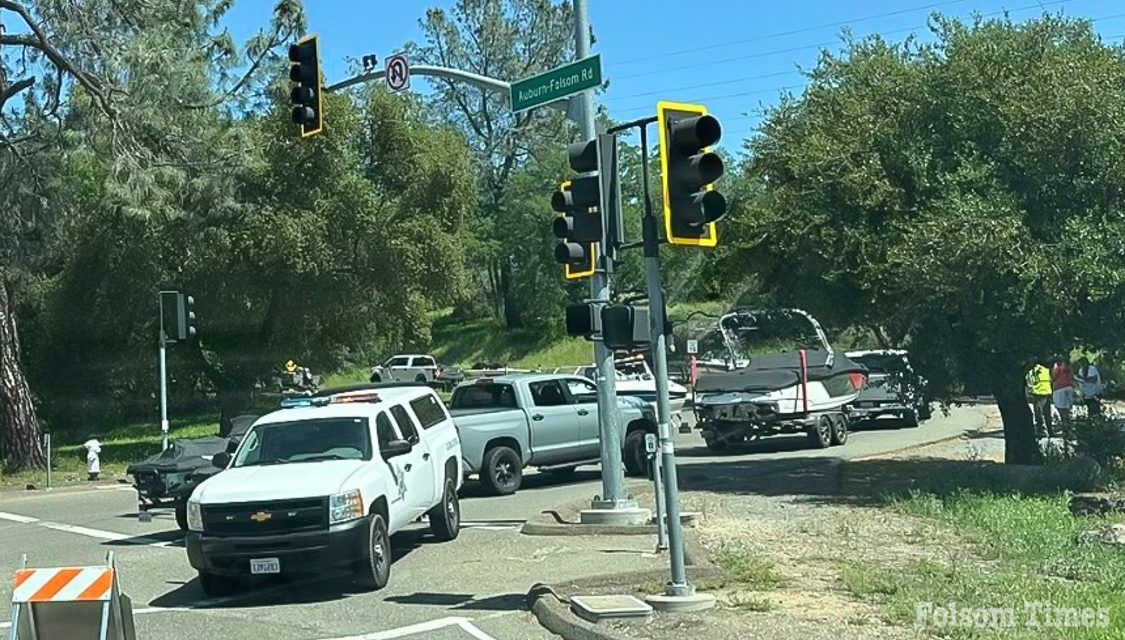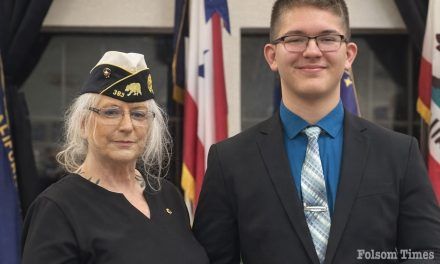After much frustration over Folsom Lake’s closure to motorized boats due to the threat of invasive golden mussels, along with a daunting inspection and quarantine process, local boaters may see a light at the end of the tunnel soon as lawmakers and state officials report progress toward a resolution.
Assemblyman Josh Hoover, along with other regional legislators, recently urged California State Parks and the U.S. Bureau of Reclamation to implement decontamination procedures that would allow boaters access while safeguarding the lake’s ecosystem. In response, California State Parks has issued a detailed letter outlining current protocols and next steps.
“Over the past week we have had productive conversations with both agencies about the importance of getting these procedures set up immediately,” Hoover said. “We have local businesses standing by, ready and waiting to do this work once given the green light by State Parks.”
State Parks Director Armando Quintero responded in a letter addressed to Hoover and other elected officials, acknowledging that “the federal government does support the use of decontamination procedures as a way to provide lake access while mitigating the impact of the invasive species.”
In their original request to state and federal officials, Hoover and fellow lawmakers expressed concerns that the restrictions “had not struck the appropriate balance between protecting the environment and our local economy.” The lawmakers urged agencies to “develop decontamination procedures that would allow boaters access while still protecting the lake from the harms of the golden mussel.”
According to Quintero, the closures were enacted under direction from the U.S. Bureau of Reclamation, which required by April 15 that no motorized vessels launch at Folsom Lake or Lake Natoma unless verified to be golden mussel-free. “The species poses a significant immediate threat to the ecological health of the Delta and all waters of the state, water conveyance systems, infrastructure and water quality,” the letter stated.
The Department’s response, including a 30-day quarantine seal program, was described as a strategy to prevent a total shutdown of the lake’s 2025 boating season. “By quickly implementing these measures, the Department is mitigating the potential of a total closure to motorized watercraft,” Quintero wrote. The agency noted that this approach mirrors similar protocols used at Lake Berryessa and New Melones.
California State Parks is currently working with local vendors to establish certified decontamination operations and is hiring additional staff to apply green seals, which would signify a boat is free of invasive species and eligible to reenter the lake. Officials are also exploring how to allow reciprocity of inspection seals from other water bodies, though challenges remain due to varying risk levels and testing protocols.
The department stated that more than 5,000 vessels have already been inspected and tagged with red quarantine seals. Quintero emphasized that the seal program was launched “at no cost to the boating community and without raising boat launch fees, helping ensure that recreational boating is available to all park visitors.” Decontamination standards and inspection protocols are being developed in coordination with the Western Aquatic Invasive Species Resource Center, considered the industry standard for such programs.
The saga of the Golden Mussels restrictions began in March, when California State Parks received notice from the U.S. Bureau of Reclamation warning of the golden mussel threat in the Sacramento-San Joaquin Delta. As a result, Reclamation required that by April 15, no motorized vessels be permitted to launch at Folsom Lake or Lake Natoma unless verified to be free of contamination.
AsFolsom Timesfirst reported on April 12, California State Parks quickly implemented a seal-and-quarantine program at Folsom Lake. Vessels that had not been previously inspected were required to undergo a 30-day dry quarantine or provide verification of a qualifying hot water decontamination. Red cable seals were issued to identify quarantined boats.
The rollout of the policy caught many boaters off guard, prompting a wave of community frustration, especially from those preparing for the spring boating season. Local businesses that rely on lake traffic—such as marinas, boat shops, and launch facilities—were also impacted.
In response to growing public concern, a bipartisan coalition of lawmakers, including Hoover, Senator Roger Niello, Assemblymember Joe Patterson, and Congressman Kevin Kiley, issued a joint letter on April 26 calling for immediate action to restore access. Their letter emphasized the importance of finding a science-based solution that supports recreation and protects natural resources.
This past week, live golden mussels were discovered during a boat inspection at Beals Point. The vessel, which had recently visited the Delta region, was placed in secure storage for further decontamination. The incident reinforced the urgency of inspection and decontamination protocols and validated the state’s early response efforts.
Companies such as Mello Marine in Folsom have since stepped up to assist, issuing red seals and awaiting approval to begin certified decontamination work. Owner Sally Mello toldFolsom Timesin April, “We can do the red tags right now, but we want to be able to have a green tag, especially for the new boats.” She noted that while her team is ready to perform hot water cleanings, the state’s formal protocols are still pending.
While he feels progress is being made in his request, Hoover acknowledged the pace of the process. “We’re definitely making progress,” Hoover toldFolsom Times by phone on Thursday. “But the wheels of government turn slowly.”
For ongoing updates and more information on inspection procedures, visitwww.parks.ca.gov/FolsomLakeGoldenMussels.
Copyright © 2025, Folsom Times, a digital product of All Town Media LLC. All rights reserved. No portion of this publication may be reproduced, distributed, or transmitted in any form or by any means, without the prior written permission of the publisher.




